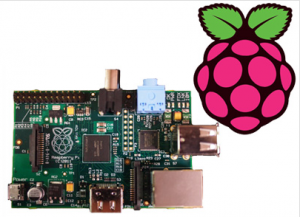What is a Raspberry Pi and why you should care

Today, February 29th, 2012, the technology world's eyes are on the release of the Consumer Preview of Windows 8 or on the latest iPad 3 rumors. We don't know exactly how these products will turn out but we can be sure of one thing: They'll cost a pretty penny. On the same day, the non-profit Raspberry Pi Foundation released a bare-boned, Linux-powered computer that costs between $25 and $35.
When I say "bare-boned," I mean just that. The Raspberry Pi, which is the creation of UK-based academics and technology companies, is a credit card sized board with a Broadcom 700Mhz BCM2835 System-On Chip running a lightweight Remix of Fedora Linux for ARM. It doesn't come with a keyboard, mouse or monitor. Heck, it doesn't even come with a hard drive or a case. It's a single board computer without even a case for the bare board.
So what does it come with? The $35 model, which is the one's that's now available, includes the following:
- Broadcom BCM2835 700MHz ARM1176JZFS processor with FPU and Videocore 4 GPU
- GPU provides Open GL ES 2.0, hardware-accelerated OpenVG, and 1080p3D
- H.264 high-profile decode GPU is capable of 1Gpixel/s, 1.5Gtexel/s or 24GFLOPs with texture filtering and DMA infrastructure
- 256MB RAM
- Boots from SD card, running Raspberry Pi Fedora Linux Remix
- 10/100-BaseT Ethernet port
- HDMI port
- USB 2.0 port
- RCA video port
- SD card slot
- Powered from microUSB port
- 3.5mm audio out jack
- Header footprint for camera connection
- Size: 85.6 x 53.98 x 17mm
So, why are people so excited about this minimalist computer that the Raspberry Pi Web site crashed from the demand?
It's because, with just this alone, and Linux of course, a hobbyist can still build a working Linux desktop or server. While it was meant for the education market, it's also proof that you don't need two plus gigabytes for just an operating system, which is the case with Windows 8 Consumer Preview or spend hundreds of dollars. Computing power, thanks to open-source software, is still available for anyone with a minimum of technical expertise and a few dollars.
You can now order your own Raspberry Pi from the UK firms Premier Farnell and RS Components.
Related Stories:
Raspberry Pi? Buying frenzy crashes website
Raspberry Pi: A $25 ultra-low-cost computer that can run Quake 3
Fedora 16, Red Hat's new community Linux distribution, arrives
